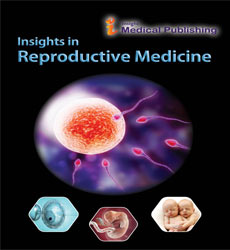Prognostic factors towards early complications among women undergoing abdominal hysterectomy at typical referral hospitals of sub-Saharan Africa: a study from Dar es Salaam, Tanzania
1Dept of Obstetrics& Gynaecology, International Medical and Technological University, Dar es Salaam Tanzania
2Clinical Research Unit, H3 Research Centre of I-Katch Technology Ltd, Dar es Salaam Tanzania
3Obstetrics & Gynaecology clinic, Alshifa Medical & Dialysis Centre, Dar es Salaam, Tanzania
4Endocrinology & Metabolism Clinic, Alshifa Medical & Dialysis Centre, Dar es Salaam, Tanzania
Abstract
Background: Hysterectomy is the commonest gynaecologic surgery worldwide. In sub-Saharan Africa, hysterectomy is still performed using abdominal incisions with hardly any laparoscopic interventions. There is no available evidence for surgical outcomes of abdominal hysterectomies performed in sub-Saharan Africa.
Objective: To assess prognostic factors for early complications occurring within 72 hours post-hysterectomies among women admitted at municipal referral hospitals in Dar es Salaam, Tanzania
Methods: A prospective hospital-based cohort study conducted at all municipal referral hospitals in Dar es Salaam, Tanzania between March-October 2017. Participants were recruited on the basis of admission for abdominal hysterectomies. Data were collected using a pre-designed clinical sheet with social, demographic, biological and clinical parameters. Data were analysed using SAS software version 9.4. Continuous variables were summarised using median (with corresponding IQR) and categorical variables using frequency and proportions. Generalised linear model was fitted after appropriate model assumptions validation.
Results: There were 107 women who underwent abdominal hysterectomies during the study period. Nearly all (n=106, 99.04%) had reported one or more complications within 72 hours post-surgery. Post-operative complications were more likely to occur among HIV-seropositive and anaemic patients (P<.05) Post-operative pain was the commonest complication reported (n=104, 97.2%).
Conclusion: Almost all women who underwent hysterectomies had reported complications. The absolute probability for early complications were higher among HIV-infected and anaemic clients.
Recommendations: Pain control strategies to surgical clients need urgent improvement. Surgical quality control and quality assurance need frequent auditing to prevent Unnecessary complications post-operatively. Laparoscopic interventions for gynaecologic surgeries need to be emphasized in Tanzania.
Keywords: Hysterectomy, Prognosis, Dar es Salaam, hospital, Tanzania.
Note: This work is partly presented at the Event on International Conference Gynecology and Obstetrics, Aug 12-13, 2019, Paris, France
Open Access Journals
- Aquaculture & Veterinary Science
- Chemistry & Chemical Sciences
- Clinical Sciences
- Engineering
- General Science
- Genetics & Molecular Biology
- Health Care & Nursing
- Immunology & Microbiology
- Materials Science
- Mathematics & Physics
- Medical Sciences
- Neurology & Psychiatry
- Oncology & Cancer Science
- Pharmaceutical Sciences
